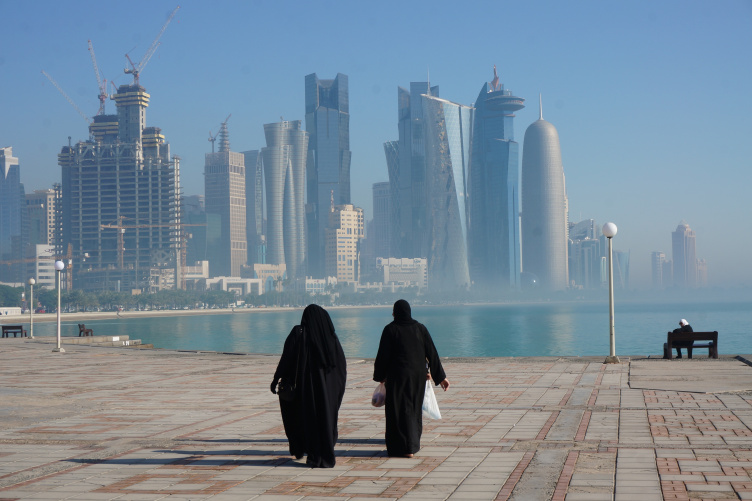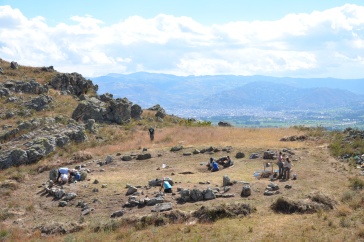
Alasdair Drysdale, associate dean of COLA and professor of geography, visited Doha, Qatar, to serve on a working group examining questions of political geography and territoriality (Photo: Alasdair Drysdale)
Alasdair Drysdale, associate dean of COLA and professor of geography, is no stranger to the Middle East and North Africa, and when Georgetown University’s Center for International and Regional Studies convened a working group in Doha, Qatar, in January to delve into questions of political geography and territoriality in the Arab States, Drysdale played an important part.

The working group focused specifically on the topic “Re-envisioning the Arab State,” and its work “was prompted by the chaotic events of the past few years, directly or indirectly set in motion by the U.S. invasion of Iraq,” Drysdale says, explaining, “Simultaneous crises in Iraq, Syria, Yemen, Egypt and Libya have raised doubts about the viability of the current state system.”
That’s where Drysdale’s work comes into play.
“As one of very few political geographers specializing in the Middle East and North Africa, my interest lies primarily in the political map and its many flaws,” he says. “Do current boundaries make sense? Are states likely to be reconfigured geographically and the political map redrawn? I was brought in to talk about the spatial and territorial aspects of the question.”
Drysdale was among approximately a dozen working group members from the U.S., U.K. and Lebanon. In addition to UNH and Georgetown, participants came from such higher education institutions as the University of Michigan, American University of Beirut, Oxford, Wake Forest, Queens University Belfast and Smith College.
“Each participant had to present a list of possible future research topics for discussion, so mostly I had to do a lot of thinking rather than writing,” he says of his preparation for the trip in January. “Each participant gave a short presentation and the rest of the hour was available for discussion.”
While the group could not reach a consensus on the topic of re-envisioning Arab states, Drysdale says the group did agree “on what is probably obvious: There aren’t any easy or quick solutions — and many ways in which things could go from very bad to even worse.”

(Photo: Alasdair Drysdale)
He explains, “I think the pervasive pessimism was striking.”
Thinking back to 2003, he adds, “I think every single ‘expert’ in the room predicted that the invasion of Iraq would have far-reaching, unforeseeable and likely negative consequences, but not a single one of us, in our wildest imagination, thought that things would get nearly so bad as they actually did. In that sense, we were right that things would probably turn out badly but completely wrong about just how badly.”
-
Written By:
Jennifer Saunders | Communications and Public Affairs | jennifer.saunders@unh.edu | 603-862-3585




















































